
Inspirational stories about not just surviving, but thriving.
By Celadon Staff
When going through tough times, it helps to know that others have had similar struggles. In these powerful memoir audiobooks, authors tell how they survive addiction, illness, abandonment, discrimination, abuse and the lasting effects of that fight. Although heartbreaking, there are lessons to be learned here — how to forgive, how to rebuild a life — that we can cherish.

Hollywood Park by Mikel Jollett, narrated by the author. 11 hours, 45 minutes.
In the early 1970s, Jollett is born into the Church of Synanon, a cult that separates infants from their parents to be raised by cult teachers. One night, Mikel, his mother, and his older brother, Tony, make a desperate and dangerous escape. With no understanding of life on the outside, it takes Jollett years to realize that they live in poverty, that his mother is severely depressed and emotionally abusive, and that his brother is struggling, too. Through the decades, Jollett reconnects with his father, goes to college, forms the indie rock band The Airborne Toxic Event, and learns to forgive. Bonus: The audiobook includes original music from The Airborne Toxic Event’s album of the same name, which acts as a soundtrack to the book.
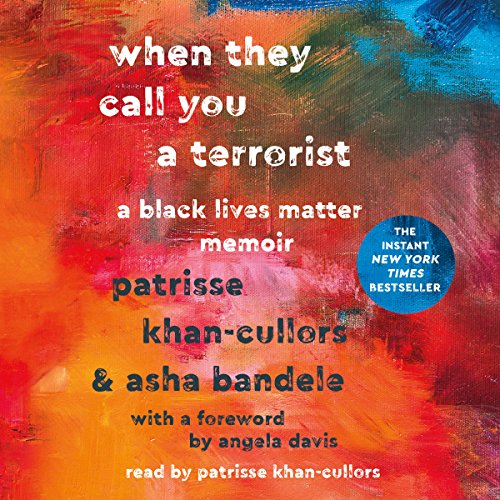
When They Call You a Terrorist: A Black Lives Matter Memoir by Patrisse Khan-Cullors and asha bandele, narrated by Patrisse Khan-Cullors. 6 hours, 29 minutes.
Turning her personal pain into a political call to action, Patrisse Khan-Cullors co-founded Black Lives Matter with Alicia Garza and Opal Tometi in 2013. Growing up in an impoverished neighborhood to a single mother in Los Angeles, Khan-Cullors endured the prejudice and rampant persecution Black Americans experience every day. While demanding an end to police brutality and racial profiling, Khan-Cullors was condemned as a terrorist, rather than as someone who fights for human rights. Her survival story is a call to action and gives voice to those who have suffered discrimination through an inherently racist system.
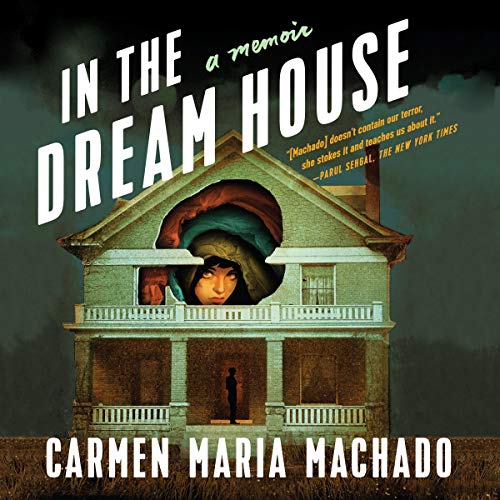
In the Dream House by Carmen Maria Machado, narrated by Carmen Maria Machado. 5 hours, 29 minutes
Charting the volatile relationship that she shared with a complicated woman, Machado builds a narrative framework to better understand her experience. Discovering this narrative has been previously lacking in cultural references or tropes, Machado uses haunted houses, erotica, and the bildungsroman to put into words the pervasive silence surrounding domestic abuse in lesbian relationships. Machado shows how society idealizes these relationships and sanitizes their difficulties, taking on her own emotional and psychological abuse as example. Told through her inimitable essayistic approach, Machado relates the history and reality of domestic abuse in queer relationships, and is a testament to survival.
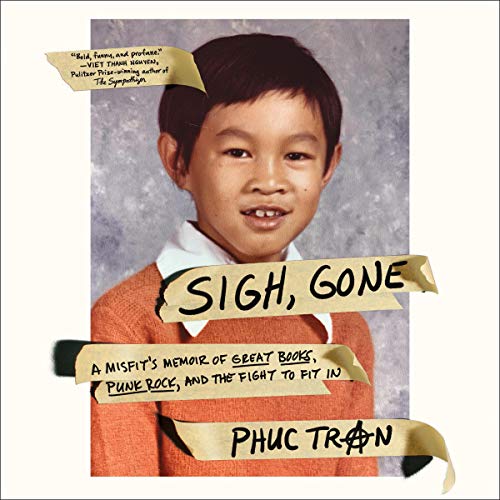
Sigh Gone: A Misfit’s Memoir of Great Books, Punk Rock and the Fight to Fit In by Phuc Tran, narrated by by Phuc Tran. 10 hours, 47 minutes.
In the 1970s, Phuc Tran emigrates with his family from Saigon to Pennsylvania where he begins his struggle to assimilate into their new life. With persistent feelings of isolation, Tran rebels as a teenager against the high expectations placed on him by his parents and finds solace in punk rock and books. Told with irreverence and poignancy, Tran’s coming-of-age story involves displacement, fighting against racism, and ultimately finding both acceptance and a sense of belonging.
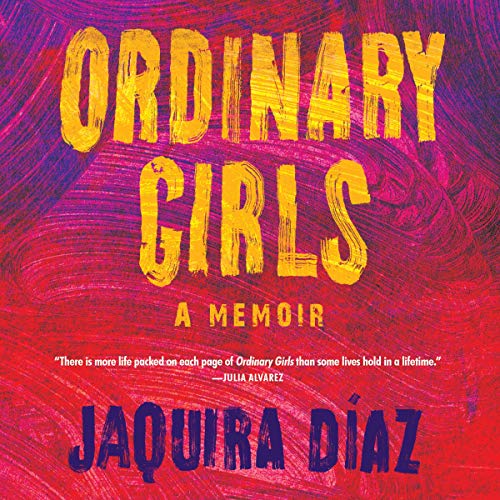
Ordinary Girls by Jaquira Diaz, narrated by Almarie Guerra. 10 hours, 8 minutes.
With searing honesty, Diaz reflects on her tumultuous childhood that encompasses violence, a broken family, and self-discovery, while growing up in housing projects in Puerto Rico and Miami Beach. Exploring her Puerto Rican culture and roots, Diaz tries to find space for her burgeoning sexuality and must seek comfort and support from friends, while lacking it at home. With a mother battling schizophrenia, Diaz fights her own mental struggles with an empowering openness, ultimately becoming the woman she would have wanted to look up to as a young girl.
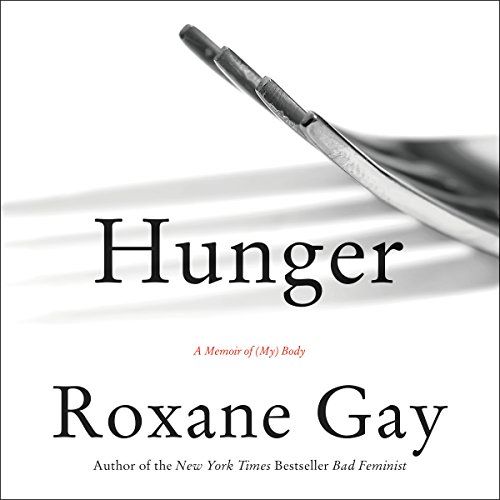
Hunger by Roxane Gay, narrated by Roxane Gay. 5 hours, 58 minutes.
Roxane Gay reflects on her relationship with food in how it has brought her pleasure and pain from equal parts denial and excess. Struggling with body image and shame, Gay examines with great intimacy the past trauma in her life and how it has pushed her to seek comfort in food. Food being both a tool in nourishment and self-care, Gay has seen this relationship take on a destructive force. With her signature wit, Gay delves into her habits and life in ways both illuminating and devastating.
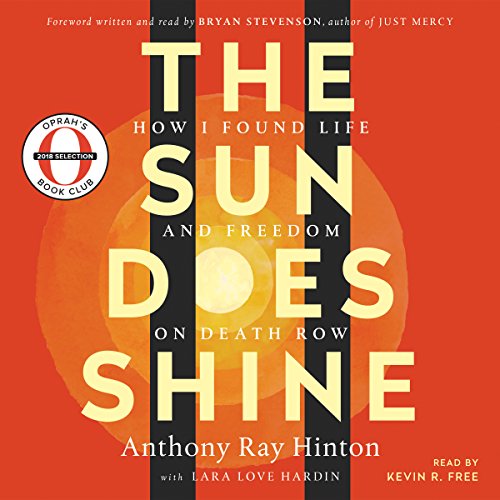
The Sun Does Shine by Anthony Ray Hinton, Lara Love Hardin, narrated by Bryan Stevenson and Kevin R. Free. 9 hours, 11 minutes
Anthony Ray Hinton lands on death row for two murders that he didn’t commit, but racism, poverty, and stigma prevent him from successfully pleading his innocence. He realizes he has a choice — lose himself in his own anger, or find a way to live on death row. He chooses the latter, becoming a deacon in the prison and building a community. Decades later, his case catches the attention of Bryan Stevenson, a civil rights attorney who finally ends Hinton’s 30-year wrongful imprisonment. Stevenson’s book about the case, Just Mercy, is also a best-seller and a movie.
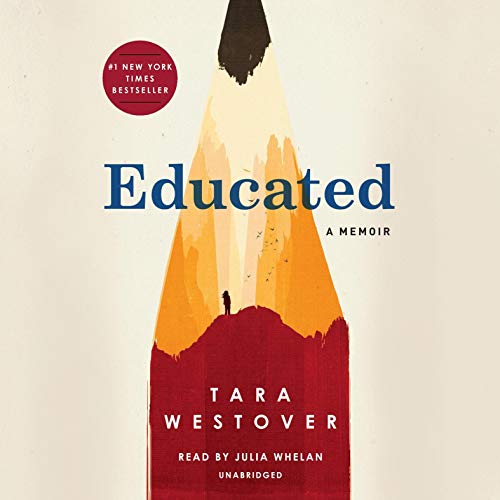
Educated by Tara Westover, narrated by Julia Whelan. 12 hours, 10 minutes.
Raised by survivalists in rural Idaho, the only people Westover knows for most of her childhood are her family. Taught to believe that family is all she needs to survive, Westover doesn’t question their way of life, including her lack of education. While one brother’s violent and abusive behavior is dismissed, another brother’s escape (and college education) inspires Westover to finally choose a different life. At 17, she begins school, a journey that will take her all the way Cambridge University.
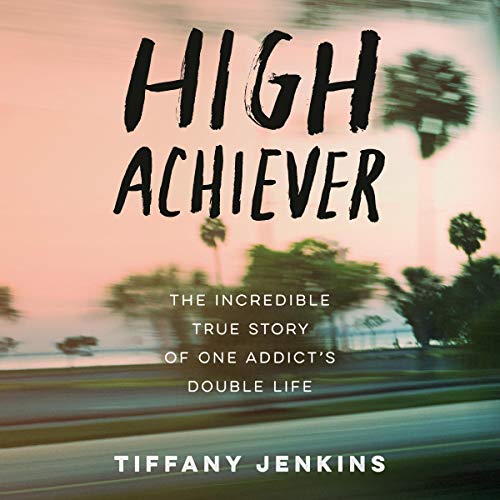
High Achiever: The Incredible True Story of One Addict’s Double Life by Tiffany Jenkins, read by the author. 8 hours, 53 minutes.
As an addict, Jenkins’ overwhelming mission is to find more drugs, even if that means stealing from the ones she loves. Fast forward a few years, and Jenkins is in jail, going through withdrawal, friendless after burning every bridge ever offered to her. But we also see her amazing recovery and the honesty it takes to plough through every sober day. Now married with children, Jenkins uses social media to reach out to families dealing with addiction or recovery, sharing her incredible story along with messages of hope.
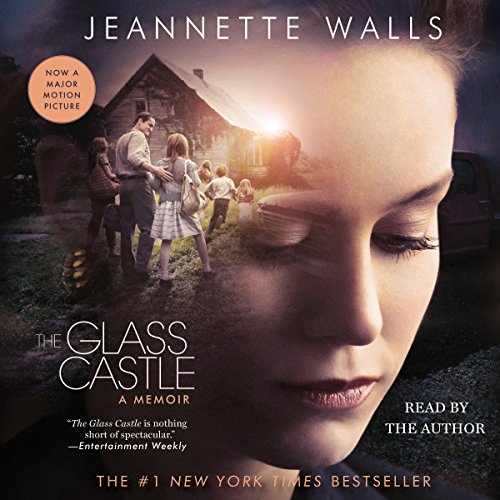
The Glass Castle by Jeannette Walls, narrated by the author. 10 hours, 25 minutes.
Walls and her three siblings have eccentric parents who prefer an unstructured life on the road, but reality forces them to settle for less. Instead of buckling down and providing for their children, their father drinks too much and steals what little they have, and their mother simply disengages. The result: four kids who have to find a way to survive and take care of each other. Eventually they manage to leave their parents and build lives out of nothing. Amazingly, Walls’ memoir is full of love and understanding.
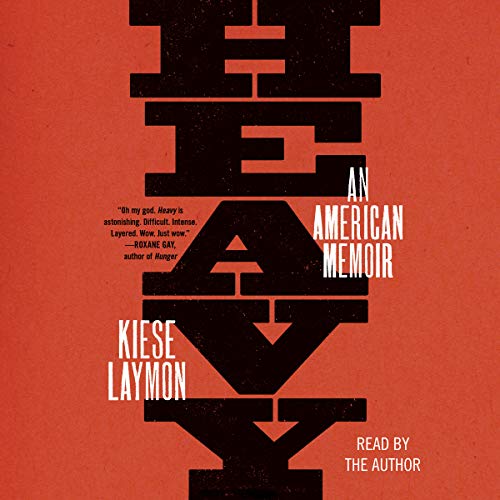
Heavy by Kiese Laymon, narrated by the author. 6 hours, 17 minutes.
Laymon’s memoir is about the secrets we keep about ourselves, our family, and even our nation. It’s also about how hard it is to carry them and the promise that comes with letting them out. A black man from Jackson, Mississippi, Laymon copes with violence, career setbacks, and health issues. But what he’s really seeking is something intangible. He wants his family to confront their painful past. He wants his nation to admit that he can draw a line from centuries of discrimination to the singular life that he has lived. In spilling these secrets, what Laymon really wants is for people to learn how to love.
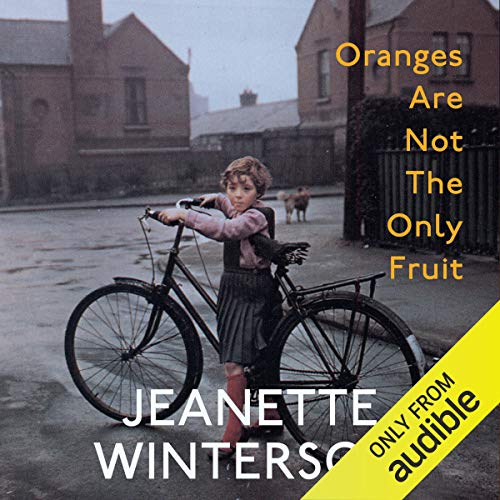
Oranges Are Not the Only Fruit by Jeanette Winterson, narrated by the author. 6 hours, 2 minutes. Raised by evangelicals in Northern England, Winterson’s first book is a fictionalized memoir. Young Jeanette is serious about her faith, and her future as a missionary is certain. Then something unexplainable happens: She falls for a girl her age. At 16 years old, Jeannette leaves the church and has to figure out how to love God, herself, and the person of her choosing. But first, she and her girlfriend have to survive the exorcism demanded by her mother and the church.
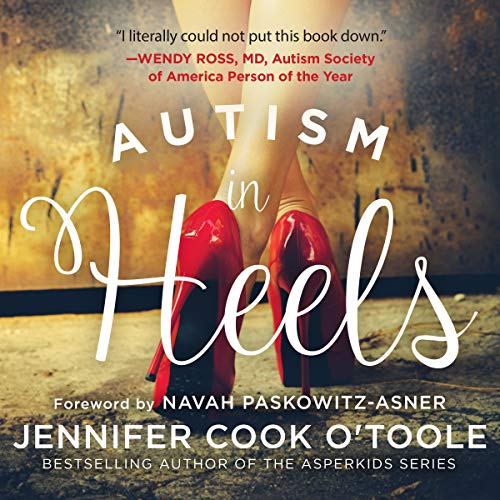
Autism in Heels by Jennifer Cook O'Toole, narrated by the author. 12 hours, 39 minutes.
O'Toole isn’t diagnosed with Asperger’s syndrome until she is 35 years old, but it almost instantly brings her life’s mysteries into focus. For years, she struggles to fit in and creates endless coping mechanisms to disguise her struggles with anxiety and low self-esteem. Now, she lays it all on the table: What life is really like on the spectrum, especially for women. Most importantly, O’Toole encourages autistic women to reframe the conversation about what’s considered “normal” so that they, too, can stop worrying about how to fit in.



